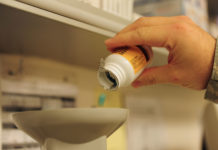Drug addiction treatment can be categorized into two types: residential and outpatient treatment. Residential drug rehabilitation is a program where an individual undergoes intensive treatment, including medical and psychotherapeutical treatment, followed by at least 6 months of residential treatment in a drug-free environment. The residential part of drug rehab is usually completed over a long-term, but not long-term. Drug rehab programs are designed to help individuals overcome their drug addictions through a comprehensive treatment plan that includes individual and group therapy, education and group meetings, along with relapse prevention. Residential drug rehabilitation is usually the best option for individuals who have been victims of alcohol or drug abuse or those with a co-morbid psychiatric disorder.
Outpatient treatment refers to a program in which an individual seeks treatment from a mental health or addiction specialist for an addiction to a variety of substances, ranging from cocaine, meth, alcohol or marijuana. Outpatient treatment programs offer more personalized attention than that offered in residential drug treatment programs and are usually offered to individuals who are experiencing a recent onset of drug use. Outpatient treatment also offers many options, including group sessions and individual counseling. Inpatient care is usually reserved for individuals who are suffering from severe drug addictions. The treatment center also uses a medical setting in order to help patients who are suffering from co-morbid psychiatric disorders. Inpatient treatment typically lasts longer than residential treatment, but the benefits of these treatments are often better in comparison to the advantages of residential programs.
These treatment plans come in many different forms, including medication, counseling, and group therapy. A comprehensive and consistent drug treatment program is critical for helping individuals overcome their drug addictions and live a healthy life. Each patient will need to have a unique approach to the treatment plan that works best for them. This means that each person will require a unique treatment program and individual support. A qualified addiction treatment provider will determine what kind of treatment is appropriate for a given patient, what kind of treatment is necessary for each stage of the program and what types of medication or counseling is best for each stage. The success of an individual’s treatment program largely depends on the willingness of the patient to change his or her lifestyle and to follow the program instructions.











